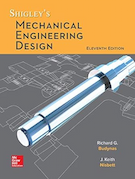Staying Ahead of Changes in the Engineering Field Through Continuing Education
The field of engineering is constantly evolving, with new technologies and innovations emerging every day. As a result, engineers must be proactive in their efforts to keep up with these changes and maintain their competitiveness in the job market. One of the most effective ways to do this is through continuing education. By participating in regular training and development programs, engineers can expand their knowledge, develop new skills, and gain the latest insights into industry trends and best practices.

The Role of Continuing Education in the Engineering Field
Continuing education plays a vital role in ensuring that engineers are equipped with the skills and knowledge required to perform their jobs effectively. It helps to keep them up to date with the latest advancements in their field, as well as new technologies and methodologies. By taking courses, participating in training programs, and attending workshops and conferences, engineers can gain exposure to new ideas and approaches that they can then apply to their work. This not only helps them to keep up with changes in the field, but it also allows them to continuously improve their skills and knowledge, thereby increasing their overall value to their organization.
Benefits of Continuing Education for Engineers
One of the key benefits of continuing education for engineers is the ability to remain competitive in the job market. By developing new skills and staying informed about the latest advances in their field, engineers can differentiate themselves from their peers and demonstrate their commitment to their profession. This can lead to more opportunities for career advancement, as well as higher salaries and better job security.
Benefits of Continuing Education for Organizations
In addition to the benefits for individual engineers, continuing education also has a positive impact on organizations. By providing engineers with the opportunity to expand their knowledge and develop new skills, organizations can benefit from increased efficiency and productivity. For example, engineers who are trained in the latest technologies and methodologies can complete projects more quickly and effectively, which can help to reduce costs and improve the bottom line.
Bridging the Skills Gap Through Continuing Education
Another advantage of continuing education is that it helps to bridge the skills gap that exists between organizations and the wider engineering community. This gap often occurs because many engineers are unable to keep up with the rapid pace of change in their field. By participating in training programs and staying informed about the latest trends and best practices, engineers can close this gap and ensure that they remain relevant in the industry.
PDH Classroom offers a suite of online continuing education courses tailored to engineers. These courses can be used to fulfill PDH credit requirements for maintaining your PE license, or just as a part of staying ahead in your field.
Continuing education is a critical component of success for engineers. By staying informed about the latest advancements in their field and developing new skills, engineers can stay ahead of changes and remain competitive in the job market. Whether you are just starting out in your career or have been working as an engineer for many years, there is always something new to learn and ways to improve. So, make sure to take advantage of the many opportunities available for continuing education and invest in your future success as an engineer.




